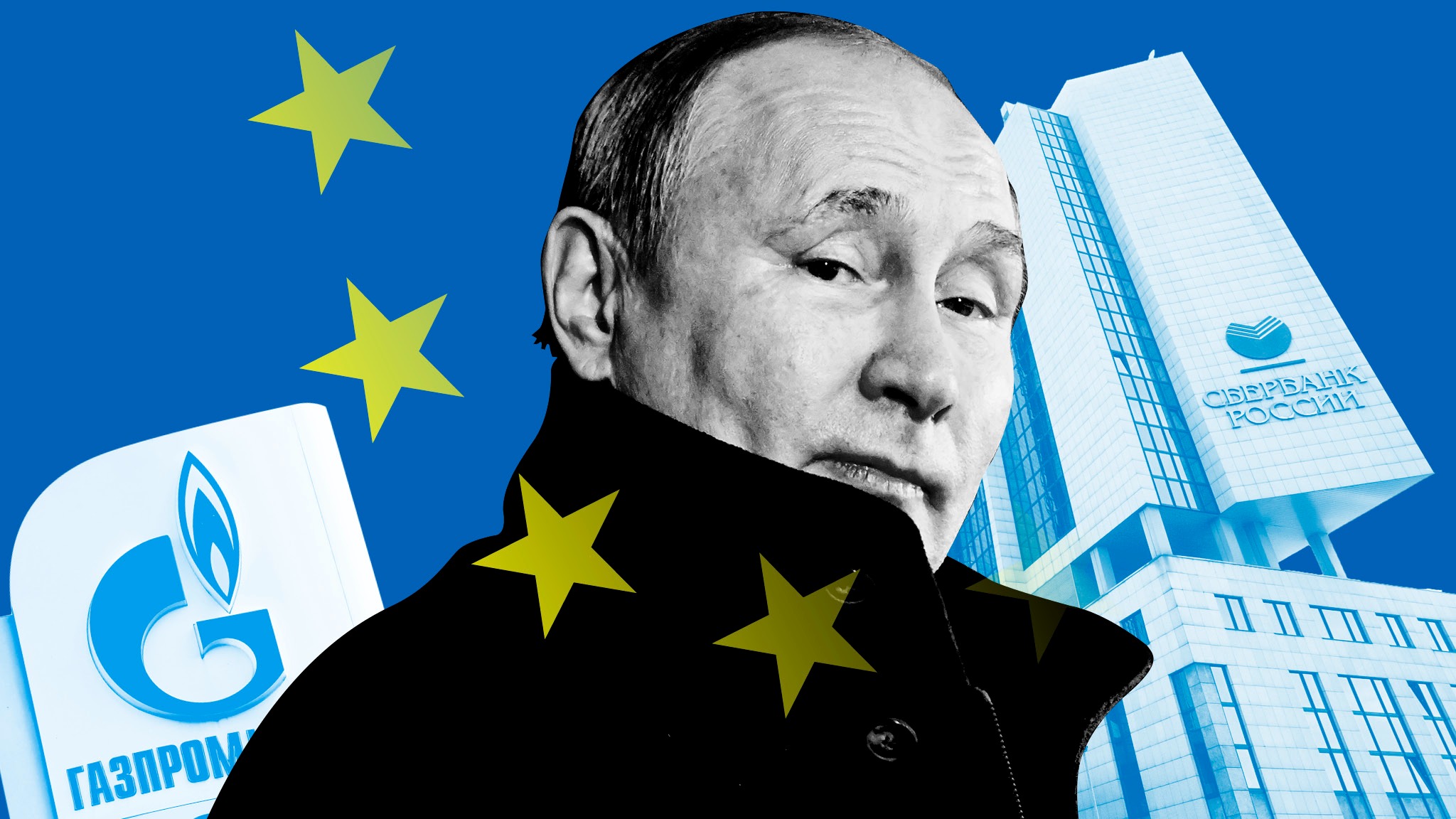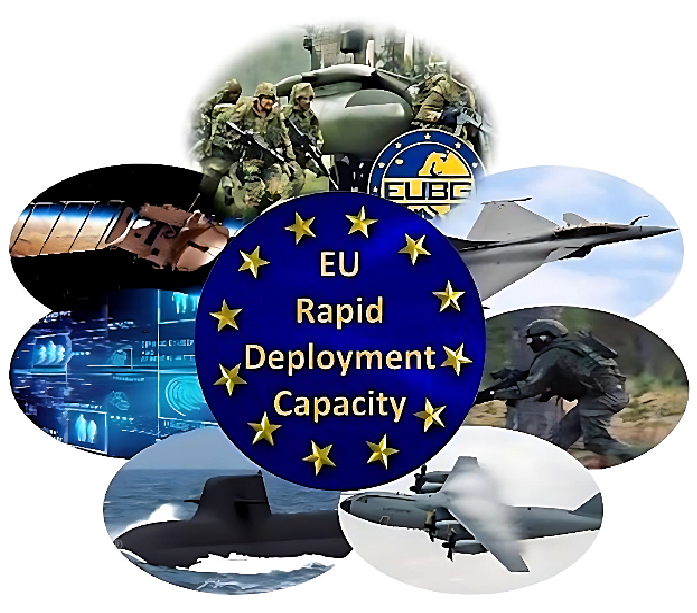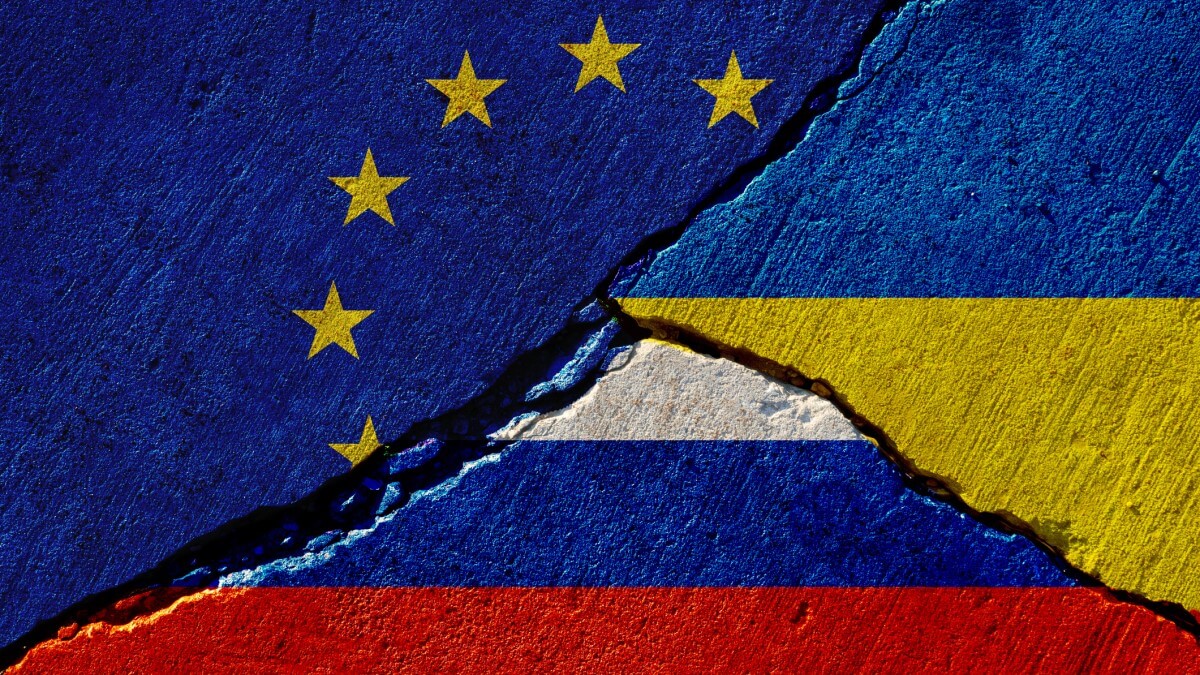By Terpsi Vassilopoulou,
As announced in the previous part, we will examine how the Russian-Ukrainian conflict has affected the EU economic and trade policy as well as the security policy in order to reach some conclusions.
Another aspect which will definitely will not be remaining the same, is the EUs economic and trade policy. With the first winter approaching after the outbreak of the war, European governments have started taking different measures in preparation of the energy crisis approaching in Europe. Despite being dealt with concern at first, after pressure applied by Germany and many suggestions made by Russia, the European Union decided to fund and support the creation of the so-called Nord Stream. This plan had to do with the creation of two pipe lines, carrying gas, which would be starting from Russia and ending in Germany with the goal to support the EUs increased demand for energy. The hesitance of the EU mainly had to do with the political aspect of this move since, the gas provided to Europe would not be “new”, but the supply of Russian gas would be limited in other countries and especially Ukraine, for Europe to acquire a larger percentage. Initial hesitation was overcome and finding the two usually competing sides in collaborations cause of common interests the construction was finished in 2021. However, this climate of compliance did not end up lasting for long and Nord Stream never started fully operating since the outbreak of the war brought Europe against Russia.
Even though this escalation did have consequences for both sides, Europe seems to be the one more affected by it, since it had relayed on Russia for her gas supply, being left now unprepared for winter. At the same time the money given to Ukraine from the union was obviously a not planned expense making the allowance of the EU for gas and energy limited and circumstances for EU citizens even worse. After this major setback in EU gas and energy supply, its politics will definitely be changing. Even if this measure is not new, the EU has intensified their demand from member states including Energy Community members to be 100% transparent on their energy agreements, an anyway fundamental prerequisite to the EUs free, liberal trade policy and vision. (Borell, 2022) Most members have promised to deliver to this demand even if some time might be needed especially for countries with high percentages of corruption within their governmental realms. More pressure has been applied on countries that have signed gas agreements with Russia even using EU law violations as an argument.
Moreover, ending this reliance of the union on energy has been discussed by the member states as a sixth wave of sanctions against Russia. It is indeed hard for all member states to agree and one cannot guarantee that all member states will be ending their economic relations with Russia especially when it comes to former communist EU members that were also part of the Soviet Union. In comparison to 2009 though when Russia made the European market its main focus and collaborations between the two sides multiplied, there are now many more different options for the EU when it comes to gas and energy supply. The option seeming more beneficial for the union right now and given the circumstances, is found in the Balkans and specifically is the so-called South Stream. Romania, the Baltic states and Poland are now trying to proceed into gas developments which can easily compete with the Russian sources while there are also off-shore gas sources available at the Romanian and Bulgarian coast. In conclusion, since the outbreak of the war, the EU is aiming to clear its trade policy with the goal of more transparent transactions and alliances between both its members and outside allies. (Umbach, 2022)

Besides the energy stock, Russia has also been threatening EUs’ wheat supplies. In order to target Ukraine’s economy and make it even weaker throughout the war, Russia has been blocking Ukraine’s wheat trade and exports, a big amount of which were meant to supply EU member states. According to the International Grains Council (IGC) the two countries in war account for 29% of the global wheat production while wheat stocks in major receiving countries- the EU included -are foreseen to fall nine-year low by the end of 2022. The EU council has been accusing the Russian government of creating a global food crisis by deciding to target Ukraine’s wheat stocks. (Trompiz, 2022) EU foreign policy chief Josep Borrell stated before a meeting in Brussels that Russia is provoking hunger in the world by bombing Ukrainian cities and preventing wheat production and exports. Last but definitely not least these circumstances with food have worsen the European economies even more with inflation reaching almost 10% according to the European Central Bank. This has obviously affected the lives of EU citizens with prices rising really high at food markets as well as gas stations and heat providers. This has come at a time of struggle for the EU member states economies which are still trying to recover from the Corona virus crisis and the economic crisis hindering Europe just before that. (European Union, 2022)
The last foreign policy aspect this paper will be examining is that of EUs security policy. Despite the EU not having its own independent army and therefore a clear military policy, security agreements within states are essential as a main goal of the union to protect and cooperate preserving peace in the continent. For this part the paper will be focusing specifically on the Common Foreign and Security policy of the EU head of which is Josep Borrell. Reports of the union after the war according to the words of Mr. Borrell have brought up the need for more intense as well as organized defense policies to be adopted by the union. This will only be possible through cooperation of the member states promoted by the further mobilization of article 44 and joint procurement. From now on the European defense agency will be working more closely with the commission and council in order to support member states. (European Union, 2022) At the same time this war has found the EU and NATO on the same side strengthening their relationship even more. With the applications of Finland and Sweden to join the military alliance we can predict NATO integrating even more into EU defense policies.
However, the most important development after the outbreak of the war in my opinion is the mobilization of the union to enforce and create a rapid deployment capacity. With the goal to be able to have a quicker, more effective and robust reaction to all crises outside its borders Brussels announced in March 2022 the plan of a Rapid Deployment Capacity to be created with the aspiration to reach its full capability in 2025. The Rapid Deployment Capacity will assist in reaching all those goals listed before with the help of 5,00 troops which will be sent to the place of crisis but will be operating differently from EU battlegroups, which have been fully operational since 2007 but have never been put to action, both in terms of size, quality and quantity. Force packages will be covering all components – air, land, cyber, space and maritime- with different levels of operational readiness and strategic enablers. This way besides having quicker and more effective reactions to crises the union will be able to make more flexible decisions while financial cooperation and solidarity between member states will be promoted. From that one can understand how great of an insecurity was created by the Russian invasion within the realms of the union, promoting the creation of a brand-new defense mechanism and policy. (Zandee and Stoetman, 2022).

Conclusion
In conclusion, the Russian-Ukraine war has made a landmark in modern day history and political reality as the first interstate war after World War II creating this way a lot of insecurity between scholars and policy practitioners on what is to be expected by the future as far as international relation and the international system are concerned. Its consequences are material and will be experienced not only by the two countries in conflict but by the citizens of the whole world. Hence governments and especially the EU in this case were obligated to react changing their foreign policy mechanism to face this crisis and overcome it in the least distractive for them way while also trying to support the country with which they have sided since the beginning of the war. All these changes and even more, were essential and only time will show how Europe will be exciting this conflict and in what percentage both its international relations and within the union policies will be successful and affected.
References
-
DR. Frank Umbach Sunday. (n.d.). The Future of European Energy Security after the Ukraine crisis. EuBulletin.com. Available here
-
Anderson, Stephanie. “Eu, NATO, and CSCE Responses to the Yugoslav Crisis: Testing Europe’s New Security Architecture.” European Security, vol. 4, no. 2, 1995, pp. 328–353
-
Zandee , D., Stoetman, A. (n.d.). Realizing the EU Rapid Deployment Capacity: opportunities and pitfalls. clingendael.org. Available here
-
Smith, S., Hadfield, A., Dunne, T.(eds.) (2016) Foreign Policy: Theories, Actors, Cases. 3rd Edition (Oxford University Press)




